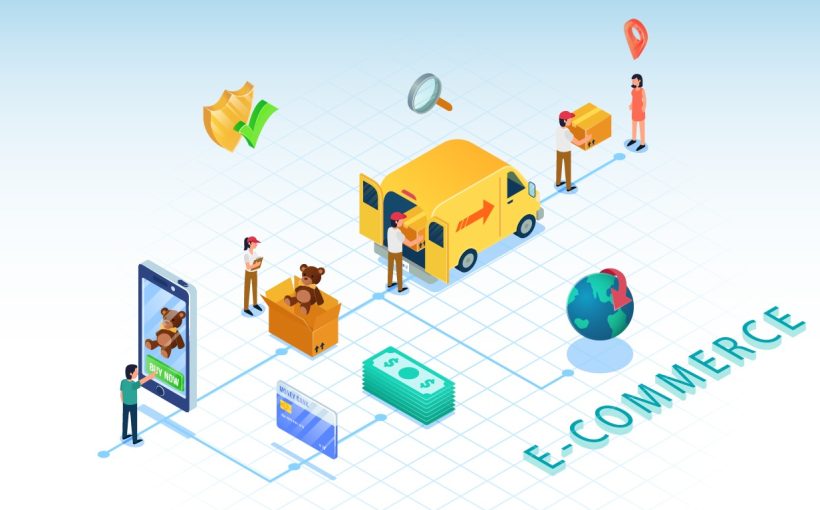The ecommerce landscape is a dynamic realm, constantly shifting and adapting to meet the evolving needs and expectations of consumers. As we embark on the journey into 2023, there is a host of emerging ecommerce trends that are set to redefine the customer experience in ecommerce. From the utilization of AI for personalized shopping to the rise of voice commerce and the growing emphasis on sustainability, these trends are reshaping the online shopping arena. In this article, we will explore these transformative developments and their implications for both consumers and businesses.
Introduction
The ecommerce sphere is in a constant state of flux, and as we enter 2023, the pace of change has never been more rapid. Consumer expectations are soaring, and businesses are leveraging technological advancements and innovative strategies to meet these burgeoning demands. This article is your guide to the transformative ecommerce trends that are poised to redefine the customer experience.

AI-Enhanced Personalization: Your Shopping Companion
Imagine having a personal shopping assistant at your beck and call, available 24/7, offering product recommendations tailored to your preferences. AI-powered personalization makes this a reality. Complex algorithms analyze your past shopping history, browsing habits, and even your social media interactions to curate a shopping experience uniquely crafted for you.
Ecommerce Trends
With the increasing use of smartphones, more and more consumers are shopping through mobile apps and websites. eCommerce businesses have been optimizing their platforms for mobile devices to provide a seamless shopping experience.Tailoring product recommendations, content, and marketing messages based on user behavior and preferences has become essential. AI and machine learning are used to analyze data and offer personalized experiences.
Voice-Activated Commerce: Shopping by Voice Commands
Voice-activated commerce is rapidly gaining ground. With the proliferation of virtual assistants like Alexa and Siri, consumers can now make purchases by simply uttering a few words. This seamless and hands-free approach to shopping is a boon for busy individuals.
Embracing Sustainability: The Green Shift
An increasing number of consumers are adopting eco-conscious values, and ecommerce businesses are taking note. Sustainable practices such as eco-friendly packaging, ethically sourced products, and carbon-neutral shipping options are becoming standard. Consumers are not just buying products; they are aligning with a brand’s commitment to the environment.

Social Commerce: The Fusion of Social Media and Shopping
Social media platforms are evolving into vibrant shopping hubs. Instagram, Facebook, and Pinterest, among others, are integrating shopping features seamlessly. Consumers can now browse and purchase products without leaving their beloved social networks.Augmented Reality (AR) Shopping: A Virtual Showroom
AR is revolutionizing the online shopping experience. It allows consumers to virtually try products before making a purchase. From virtually trying on clothes to placing furniture in their living spaces, AR adds a new dimension to ecommerce.Blockchain for Trust and Transparency
Blockchain technology is playing a pivotal role in ensuring trust and transparency in ecommerce transactions. It provides an immutable ledger, making it virtually impossible to tamper with transaction records. This technology is especially critical for high-value transactions and international trade.
Conversational Commerce: The Age of Chatbots
Chatbots are evolving beyond mere automated responders; they are becoming intelligent conversational partners. They can answer queries, provide product recommendations, and offer personalized assistance. Conversational commerce is all about enhancing customer engagement.
Subscription-Based Models: Convenience Meets Loyalty
Subscription-based models are gaining traction, offering consumers convenience and businesses recurring revenue streams. From meal kit subscriptions to streaming services, this model fosters customer loyalty and predictability in revenue.
Mobile Shopping Apps: The Store in Your Pocket
Mobile apps are taking center stage as the primary storefront for ecommerce businesses. They offer a seamless shopping experience with features such as push notifications and one-click purchasing. The era of mobile commerce is here to stay.
Inclusivity and Accessibility: Serving All Customers
Ecommerce is on a mission to become more inclusive and accessible to all. Websites and apps are being designed with accessibility in mind, ensuring that everyone can enjoy the online shopping experience, regardless of their abilities.
Customer Data Privacy: The Bedrock of Trust
In an era where data breaches make headlines, safeguarding customer data privacy is of paramount importance. Ecommerce businesses are investing in robust security measures and transparent data handling practices to earn and maintain their customers’ trust.
Harnessing User-Generated Content (UGC)
Consumers trust other consumers. User-generated content, including reviews and ratings, wields significant influence over purchasing decisions. Ecommerce platforms are actively encouraging customers to share their experiences.
Revamping the Supply Chain
The pandemic exposed vulnerabilities in supply chains. Ecommerce businesses are reimagining supply chain management by integrating technologies like IoT and predictive analytics to ensure products are available when and where consumers need them.

Reimagining the Returns Process
Returns are an integral part of ecommerce. Forward-thinking businesses are streamlining the returns process, making it hassle-free for consumers while optimizing cost-efficiency for themselves.
Conclusion
As we step into 2023, ecommerce isn’t just about selling products; it’s about delivering exceptional experiences. Businesses that embrace these ecommerce trends are not only meeting consumer expectations but also positioning themselves for success in a rapidly evolving digital marketplace.
FAQs
- Why is AI-enhanced personalization significant for ecommerce?
AI-enhanced personalization enhances the shopping experience by offering tailored product recommendations, resulting in increased customer satisfaction and higher sales. - How does voice-activated commerce work, and is it secure?
Voice-activated commerce enables consumers to make purchases using voice commands, and it is secure with robust authentication measures in place. - What are some examples of sustainable practices in ecommerce?
Sustainable practices encompass eco-friendly packaging, ethical product sourcing, and reducing the carbon footprint of shipping. - How can blockchain technology benefit ecommerce businesses? Blockchain ensures transparent and tamper-proof transaction records, instilling trust and security in online transactions.
- Why is user-generated content important for ecommerce?
User-generated content, such as reviews, fosters trust among potential customers and aids them in making informed buying decisions.











